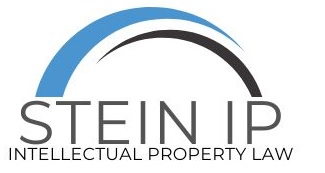- HOME
- > Blog Main Page
- > Uses of AI - Copyrightability of AI-Generated And Assisted Content
Uses of AI - Copyrightability of AI-Generated And Assisted Content
by Aman Mehta
In recent years, the intersection of artificial intelligence (AI) and copyright law has sparked a complex debate, challenging traditional notions of authorship, creativity, and ownership. At the heart of this discussion is the question of whether AI-generated content can, or should, be copyrighted. This issue has gained prominence due to the increasing capabilities of AI to produce content that rivals human creativity, from text and images to music and beyond.
A U.S. Senate Judiciary Committee Hearing held on July 12th, 2023, on copyrightability of AI-generated content brought together a diverse panel of experts from the fields of copyright and technology. The founders and developers of large language models have emphasized the use of open-source information for training AI models, arguing that these data sets are not stored within the models themselves but are merely used for "training" purposes.
On the other side of the debate, creators expressed concerns that AI-generated content represents an existential threat to their livelihoods, accusing large language models of using their works without consent to create "new" content. They called for a framework that ensures consent, credit, and compensation for the use of licensed content.
The current copyright framework does not recognize computer systems as authors (See Thaler v. Perlmutter, No. CV 22-1564 (BAH), 2023 WL 5333236 [D.D.C. Aug. 18, 2023]), which has led lawmakers to reconsider the existing framework considering generative AI's advancements.
The use of open-source data sets for training AI models is currently protected under "fair use," but the challenge lies in determining how AI-derived content from licensed material should be treated to protect existing works while fostering innovation.
The debate extends into the realm of art, where the future may increasingly involve AI-generated works. Artists using AI for prompt engineering advocate for rights over their "artwork," suggesting that the human application of AI in creating art should be recognized and protected. Conversely, creators argue that large language models use their work without seeking consent, demanding transparency, compensation, and the ability to opt out of inclusion in AI models.
Two landmark cases, New York Times v. OpenAI (The New York Times Company v. Microsoft Corporation, OpenAI & ors., 1:2023cv11195, U.S.D.C. S.D.N.Y) and Getty v. Stability AI (Getty Images (US), Inc. v. Stability AI, Inc., 1:23CV00135, U.S.D.C D. Del), are currently making their way through various U.S. courts, with outcomes that could significantly impact the future of AI-generated content. These cases address allegations of unfair use of copyrighted material by AI companies and could lead to a requirement for licensing agreements for materials currently used under the "open source" label.
The Times has initiated legal action in the U.S. District Court (Southern District of New York State) against OpenAI and Microsoft, alleging that the defendant's large language models, including ChatGPT, have been trained on and are generating content based on copyrighted material from the Times without proper authorization.
The case has sparked a significant debate on the fair use of copyrighted material in training AI models and could set a precedent for future disputes in this rapidly evolving field. This could shape future business models for AI companies wherein there would be licensing deals structured to use copyright materials of organizations such as the Times.
Similarly, Getty Images has filed a lawsuit in the U.S. District Court (District of Delaware) against Stability AI, the creators of the image generation platform Stability Diffusion, for allegedly using over 12 million Getty Images photos without authorization to train their AI model.
This case underscores the challenges copyright holders face in protecting their intellectual property in the age of generative AI and raises questions about the legality and ethics of using copyrighted material to train AI systems.
One notable example that illustrates this shift is "Zarya on the Dawn," a creative piece generated with the assistance of AI. While the artwork itself was AI-generated, it was the human-crafted prompt and instructions that were recognized by the U.S. Copyright Office.
This distinction underscores the evolving understanding of copyright law in the age of AI, where the creative input of humans in guiding AI to produce creative pieces is being recognized by the U.S. Copyright Office.
This example serves as a precedent for how AI-assisted works, rather than purely AI-generated works, might be treated under copyright law, emphasizing the value of human creativity even in the context of advanced technology.
As the legal and creative landscapes continue to evolve, the dialogue between technology developers, artists, and lawmakers will be crucial in shaping a future where AI-generated content can coexist with human creativity, ensuring fair compensation and recognition for all creators involved.
P.S. – An Artificial Intelligence model was used to compile and generate the parts of this blog post. However, the research and content of this blog and the information to generate the post were provided by our team. After reading this blog post as a reader, what do you think, should this material be copyrightable or is it still in the realm of AI-generated content? Let us know your thoughts about the blog below or email us on email@steinip.com
References
1. https://www.youtube.com/watch?v=uoCJun7gkbA
2. https://www.judiciary.senate.gov/artificial-intelligence-and-intellectual-property_part-ii-copyright
3. https://ecf.dcd.uscourts.gov/cgi-bin/show_public_doc?2022cv1564-24
4. https://nytco-assets.nytimes.com/2023/12/NYT_Complaint_Dec2023.pdf
5. https://docs.justia.com/cases/federal/district-courts/delaware/dedce/1:2023cv00135/81407/1
6. https://www.copyright.gov/docs/zarya-of-the-dawn.pdf

TAGS:
